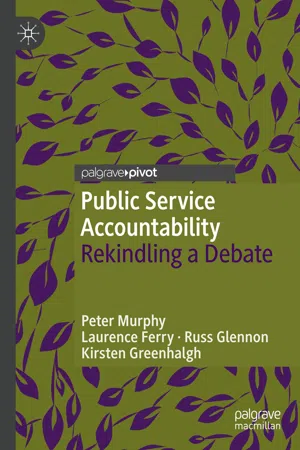Introduction
The delivery of public services affects everyone on a daily basis, from quotidian services such as roads and refuse collections to those that we reach out to in our most vulnerable times, such as the police or ambulance services. Public service delivery is a fact of life.
We fund public services in a variety of ways, yet many of these ways are indirect—that is, not directly related to the ‘consumption’ of these services. Services differ but are largely funded via taxes collected locally and nationally. Some services, such as local government , have a direct democratic interface; for others, the lack of this feature is sometimes considered as a problem, often referred to as a ‘democratic deficit’.
Sometimes, the public sector is referred to as if it were a single, homogenous block, often when compared with the private sector. Yet, it could be argued that more divergence exists within the public sector than between public and private. It could equally be argued that some processes and characteristics differ little: what makes effective leadership, management, and how to evaluate performance or financial expenditure may all have a high degree of similarity between organisations, services, or sectors.
However, we argue that the public sector is distinctive in the way that services are conceived, managed, and assessed. Too often the private sector operating model is taken as an ideal. This is the ethos behind New Public Management (Dunleavy and Hood 1994; Hood 1991, 1995): that the imposition of modern (competitive) business practices is the (best) way to encourage improvement in public service delivery.
We would argue that this is overly simplistic and reductive, particularly, when considering how public services are held to account. For example, if you are unhappy with the service, price, or quality provided in your preferred supermarket, there are several others that would be happy to accept your custom. You may not even have to travel far to find an alternative. Indeed, you do not have to limit yourself to one supermarket—you can do your shopping in as many as you choose, either in physical shops or online. If something isn’t right, a complaint will usually secure you a replacement, refund, or in some cases, compensation for the inconvenience or disruption. Accountability, in these circumstances, is often interpreted as satisfaction on a transactional basis. The consumer may often take for granted the existence of regulations that ensure a safe service or product and may also rely on other consumers to aggregate their choices in such a way that the company delivers what is wanted, at a price that is acceptable, and to the desired level of innovation or design.
It can be argued that the private sector has introduced or facilitated many innovation s that have improved public service delivery, from online reporting to performance management practices. And yet, the vast majority of public services are not like supermarket shopping or a restaurant meal. Simplistic accountability mechanisms that treat private and public sectors as being the same do both a disservice. The two sectors are perhaps ‘alike in all unimportant respects’ (Allison 1986).
At the same time, a body of the literature around what is termed ‘co-production ’ or ‘co-creation of value ’ (Radnor et al. 2014; Alford 2016; Lusch and Vargo 2006; Osborne et al. 2013) has begun to articulate the distinctiveness of a services-based approach, as opposed to product-based logics. This ‘service-dominant logic ’ approach highlights the preponderance of the literature and perspectives rooted in the private sector; approaches that are too often uncritically presented as being significant for public services. This simplistic view also leans too heavily on a dyadic conception of services and products occurring at what Normann calls ‘the moment of truth’ (Normann 2000): that is, individual service interactions are what is important in delivering accountability, and the aggregation of those is sufficient to show that the organisation is working well. We will not revisit this argument here but rather suggest that this is one key part of developing a sense of how well public services are performing and will need to perform in the future. We will argue that purely backward-looking forms of reviewing service performance or failure are insufficient for public services (Haveri 2006). Accountability must also look forwards to create the environment for successful delivery, as well as review past performance.
The growing interest in co-production has helped to highlight some of the differences between co-producing an individual relationship with a service, and the impact on co-production (i.e. co-design, co-innovation ) at ...
